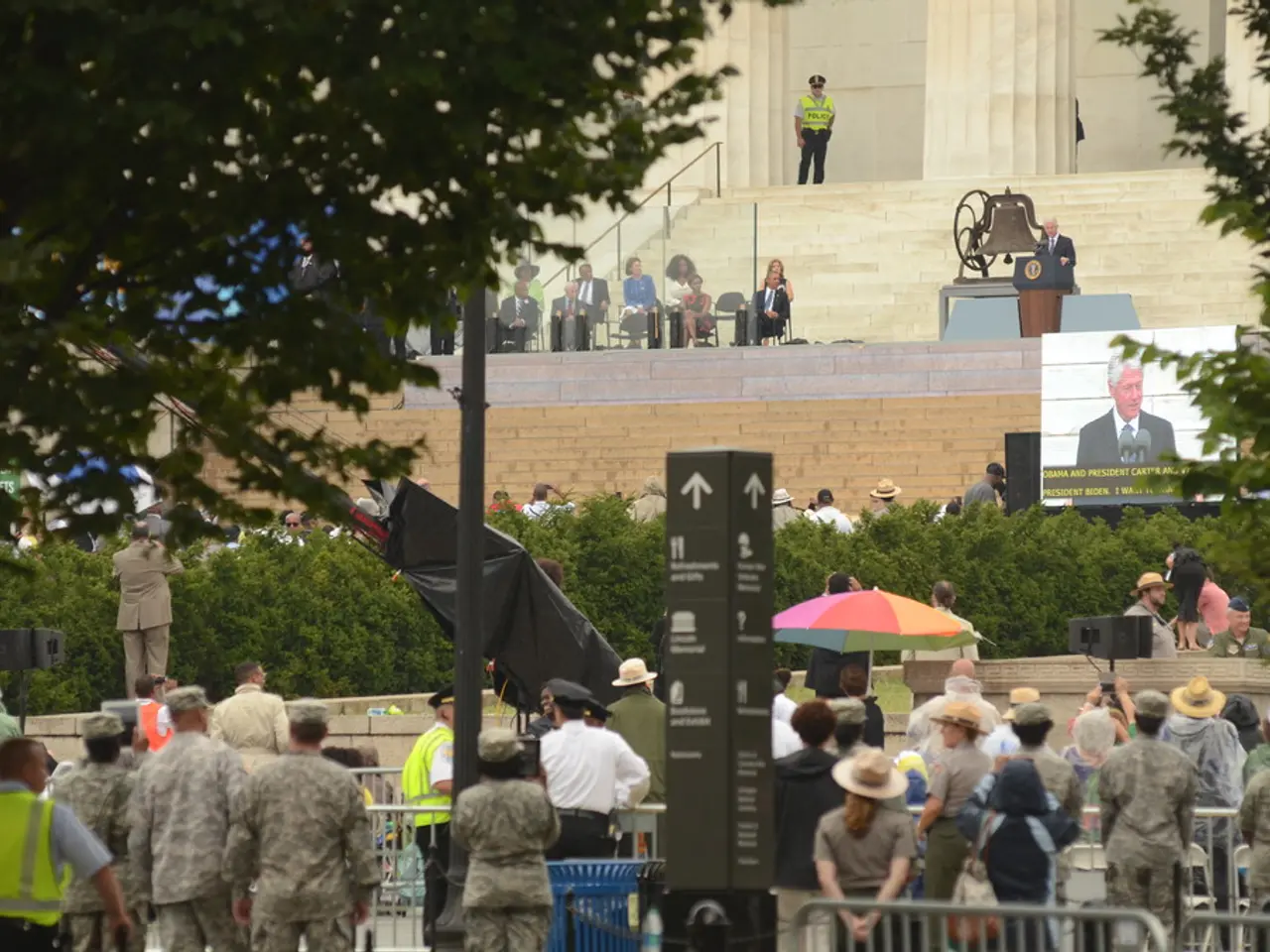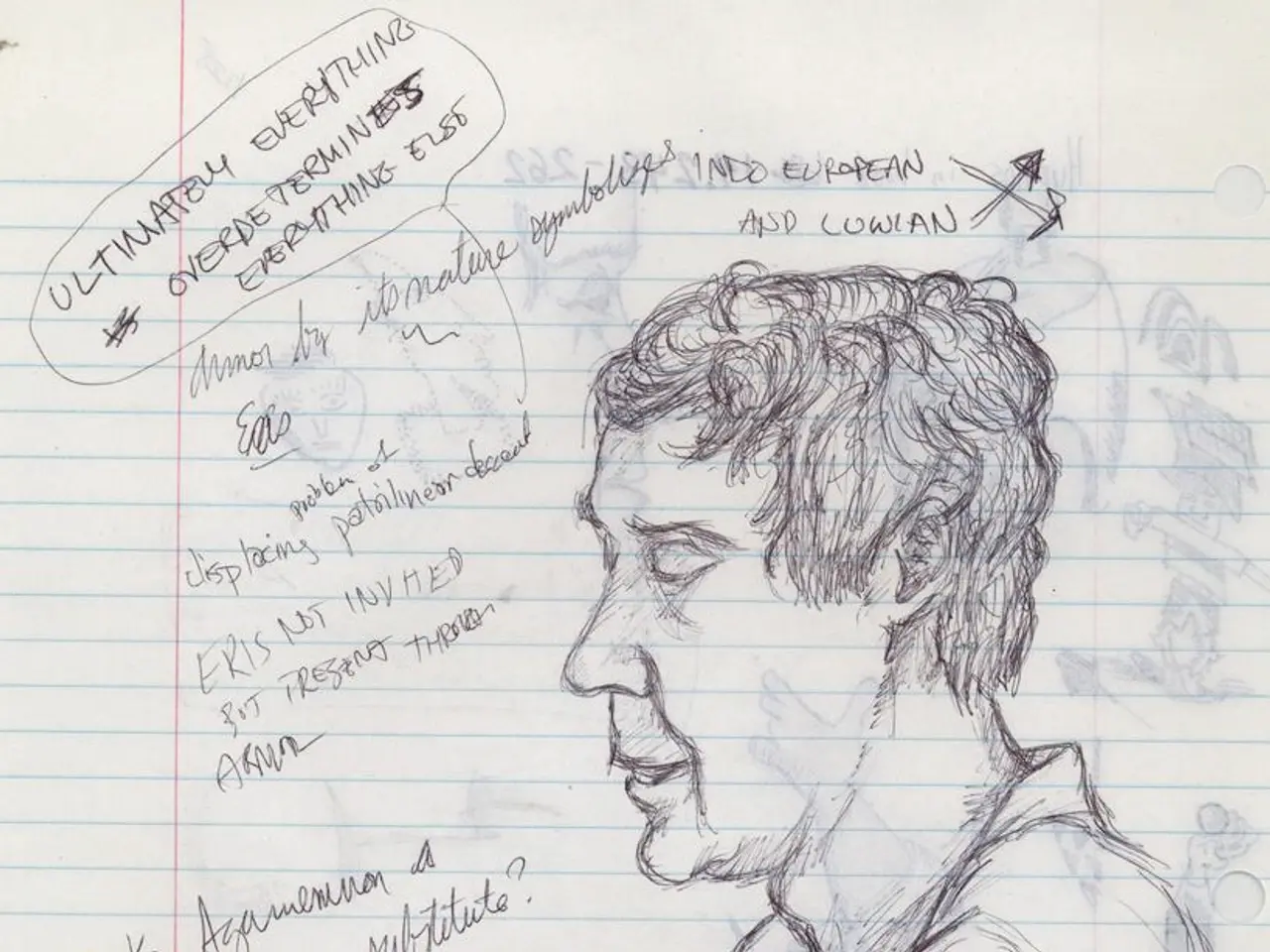Israeli authorities arrest spouse of Middle East Eye journalist in escalating conflict with Gaza
Unleashing Chaos: The Israeli military's arbitrary detention of Mohammad al-Hajjar's wife, Inas Abu al-Maza, in the Gaza Strip showcases the devastating impact of ongoing military operations on Palestinian civilians.
Abu al-Maza and her family were separated as they tried to move south to Rafah. The Israeli army detained her, confiscating her valuables, including several thousand dollars, personal gold jewelry, and two phones. Her release was marred by the army preventing her from reuniting with her family in the south.
This incident sheds light on the Israeli army's detention of hundreds of civilians during their ground invasion of Gaza in late October. Although some have been released after interrogation, many disappear without a trace.
Areas of Concern:- Since the Israeli ground invasion of Gaza, the Netzarim corridor, which bisects the Gaza Strip in two, has become a hotspot for Palestinian detentions. Palestinians attempting to move southwards are often interrogated and harassed.
Behind the Veil:Hajjar, a veteran Middle East Eye correspondent, was present during the family's ordeal. Israeli soldiers stopped the family at a checkpoint, gathered identification cards from immediate family members and other Palestinians, and interrogated everyone about their connections. Upon checking Abu al-Maza's ID, a soldier inquired about their relationship, to which Hajjar replied that she was his wife. The soldier ordered them to separate and threatened Hajjar at gunpoint when he resisted.
Abu al-Maza has no known political affiliations, and her family members have no history of political activities. Her whereabouts remain unknown until Hajjar learned that she had been released but forced to return to Gaza City, further separating her from her family in the south.
The consequences of these detentions reach beyond individual families, as Palestinians worry about the safety and well-being of their loved ones in the hands of Israeli forces. Such practices have been criticized for targeting civilians, inflicting emotional distress, and subjecting detainees to abuses, torture, and humiliating conditions.
Broader Context:The Israeli military's actions in Gaza are part of a broader context of severe humanitarian crisis and military operations affecting Palestinians in both Gaza and the West Bank. In the West Bank, Israeli military operations have led to an increase in arrests, displacement, and destruction of essential civilian infrastructure, actions condemned as grave breaches of international law. Over 82.6% of the Gaza Strip has been confined within Israeli-militarized zones, severely restricting movement and access. The resulting vulnerability of the population under military operations, along with widespread destruction of civilian infrastructure and educational facilities, amounts to acute humanitarian distress and has been condemned as war crimes and violations of international law.
- The recent analysis of the detention of Inas Abu al-Maza in the Gaza Strip, a Palestinian civilian, serves as a stark example of the devastating impact of war-and-conflicts in the Middle East, particularly in Palestinian territories.
- The media's coverage of this incident has highlighted the ongoing opinion that the Israeli army's actions against Palestinians, such as the detentions at the Netzarim corridor, infringe upon general-news standards of human rights and international law.
- The detention of Abu al-Maza, who has no known political affiliations, raises concerns about crime-and-justice issues, as it seems to target civilians indiscriminately, inflicting emotional distress and subjecting detainees to potential abuses, torture, and humiliating conditions.
- In the broader context, the Israeli military's actions in both the Gaza Strip and West Bank, including detentions, displacement, and destruction of essential infrastructure, have been a hot topic in political discussions, with many viewing these actions as severe humanitarian crises and violations of international law.
- The news of Mohammad al-Hajjar, a Middle East Eye correspondent, being threatened at gunpoint during his wife's detention by Israeli soldiers underscores the dangerous environment journalists face while reporting on ongoing war-and-conflicts in the Middle East.







